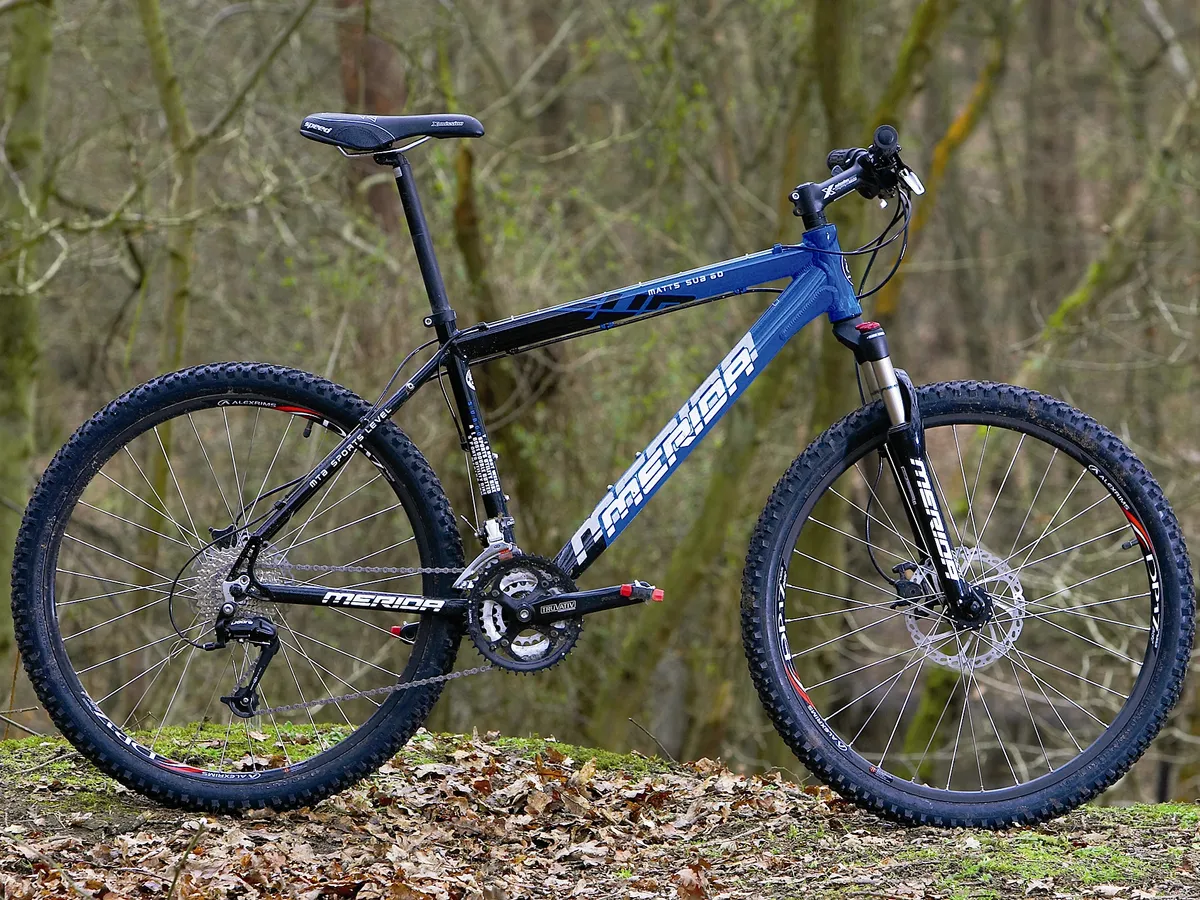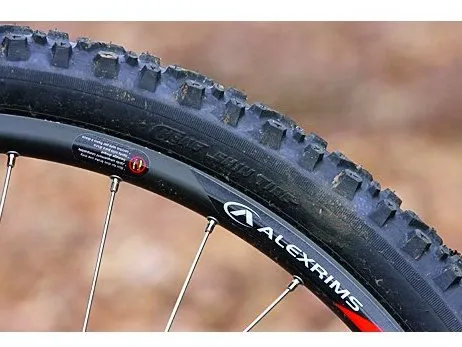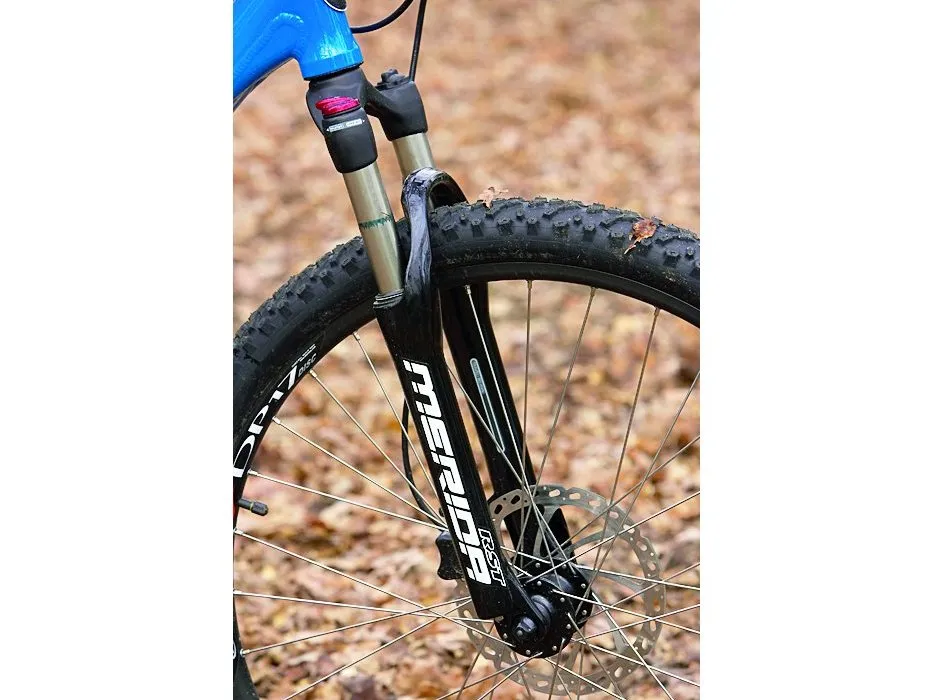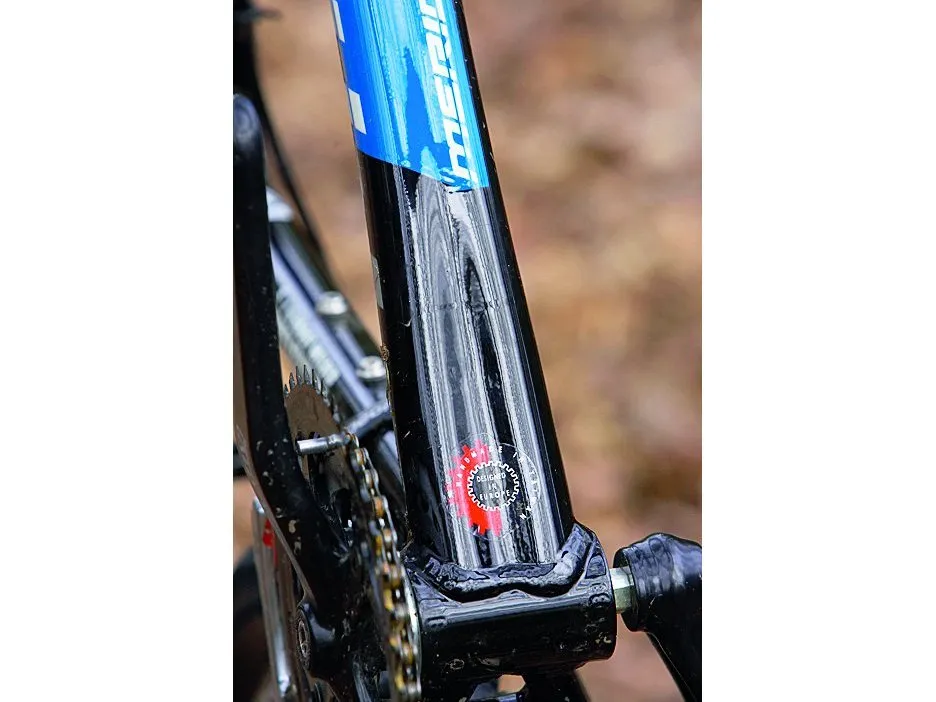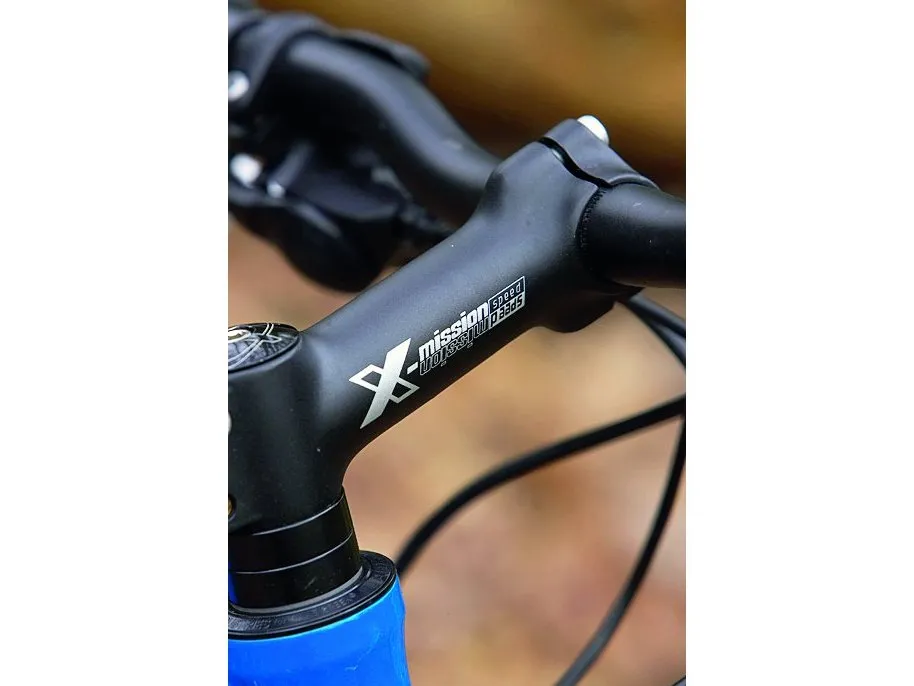The Matts SUB 60-D (Merida's Advanced Tigwelding Technology Systems Sports Utility Bike 60 Disc) weighs 13.4kg (29.5lb), and the frame is bang up-to-date in terms of manufacturing quality, which is what you'd expect from one of the biggest frame manufacturers on the planet. First impressions are that it's slightly value compromised when it comes to components, at least compared to the other three bikes here. Still, it has a 27-speed Deore gearset, decent brakes and, as always, the ride feel is usually more crucial than minor parts detailing.
Frame
Handling is good, from technical singletrack to rocky descents
The SUB 60-D frame is a very well built affair. The 6051 aluminium tubes are double butted to save a little weight in the mainframe, with nicely hydroformed top and down tubes adding both aesthetic flair and practical strength advantages to the overall frame structure. The down tube is almost like a teardrop in shape, manipulated to form the widest possible weld contact area on to the head tube and bottom bracket shell, and butterfly gusseted into the head tube for extra impact strength. The relatively slimline chainstays curve in for heel clearance and out again for mud room around the tyre, the seatstays have rack eyelets and there are two sets of bottle cage bosses. The rear facing quick release seat clamp fell apart the first time we used it though, so we fitted an allen bolt.
The geometry is sporty rather than sedate. The longish (23in) top tube (on the 18in bike) combines well with a steep seat angle, sitting you far enough forward to get the best out of the RST 80mm travel fork. RST forks seem to vary considerably in feel, presumably depending on the spring fitted, and this one was more strongly sprung than the fork on the Felt. The factory-set rebound damping seemed to suit most riders and the preload dial on top of the left-hand leg was very effective for fine-tuning the impact/rider weight needed to kick the fork into action. The lockout switch on the right-hand leg was useful on climbs too.
Equipment
The Merida's drivetrain is a full Shimano Deore gearset with a low budget, steel-ringed, square taper-axled Truvativ crankset. Everything worked perfectly right through the test period. The disc brakes, Hayes Sole hydraulics, are powerful enough but the dull lever feel takes a bit of getting used to and it takes a couple of rides for the pads to bed in.
The Merida's wheels use anonymous hubs but we had no reason to moan about them during our testing. The rims are tough, reliable Alex DP17s and the Cheng Shin tyres, although not a major brand, are fairly grippy and surprisingly fast-rolling offerings.
All the finishing kit is very basic Merida own-brand stuff. There's nothing wrong with it, but it doesn't have the sales draw of stuff like Truvativ branded kit. We're not complaining, but this is a competitive market and it's the fine detail that often seduces an undecided buyer.
Ride
First up, the Merida is noticeably fast. The treads on the Merida roll quite a lot faster than those on the other three bikes, simply because of their much lower knob profile and almost constant centre tread pattern. Traction is pretty good too; it's amazing how much difference tyres can make to the overall performance of a bike.
The RST fork performed well. A well controlled fork adds considerable confidence at both high and low speeds, and a well sprung 80mm is a good hard hitting travel option that still allows Merida to design a fairly lively handling geometry set-up. Handling is good on all types of terrain, from technical singletrack to rocky descents. Climbing is a breeze because of the fast tyres too. The component spec could be slightly better value, but the Merida certainly has the edge if absolute performance is more crucial to you.
